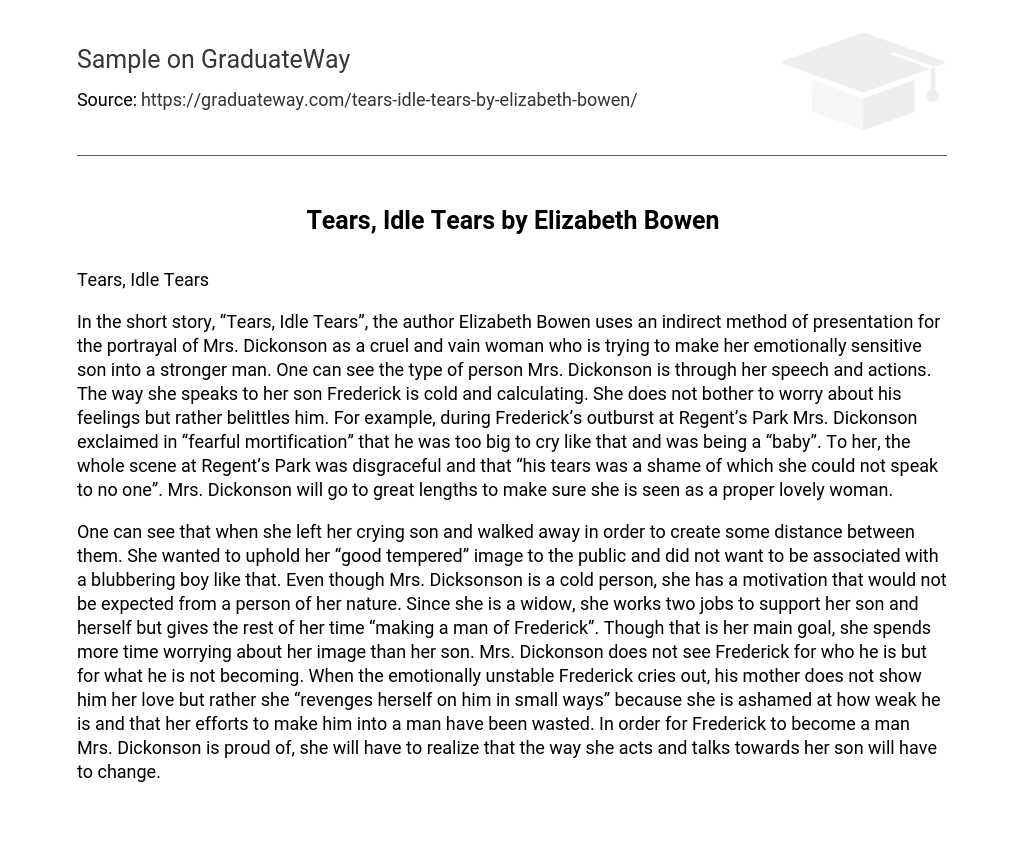Tears, Idle Tears
In the short story, “Tears, Idle Tears”, the author Elizabeth Bowen uses an indirect method of presentation for the portrayal of Mrs. Dickonson as a cruel and vain woman who is trying to make her emotionally sensitive son into a stronger man. One can see the type of person Mrs. Dickonson is through her speech and actions. The way she speaks to her son Frederick is cold and calculating. She does not bother to worry about his feelings but rather belittles him. For example, during Frederick’s outburst at Regent’s Park Mrs. Dickonson exclaimed in “fearful mortification” that he was too big to cry like that and was being a “baby”. To her, the whole scene at Regent’s Park was disgraceful and that “his tears was a shame of which she could not speak to no one”. Mrs. Dickonson will go to great lengths to make sure she is seen as a proper lovely woman.
One can see that when she left her crying son and walked away in order to create some distance between them. She wanted to uphold her “good tempered” image to the public and did not want to be associated with a blubbering boy like that. Even though Mrs. Dicksonson is a cold person, she has a motivation that would not be expected from a person of her nature. Since she is a widow, she works two jobs to support her son and herself but gives the rest of her time “making a man of Frederick”. Though that is her main goal, she spends more time worrying about her image than her son. Mrs. Dickonson does not see Frederick for who he is but for what he is not becoming. When the emotionally unstable Frederick cries out, his mother does not show him her love but rather she “revenges herself on him in small ways” because she is ashamed at how weak he is and that her efforts to make him into a man have been wasted. In order for Frederick to become a man Mrs. Dickonson is proud of, she will have to realize that the way she acts and talks towards her son will have to change.





